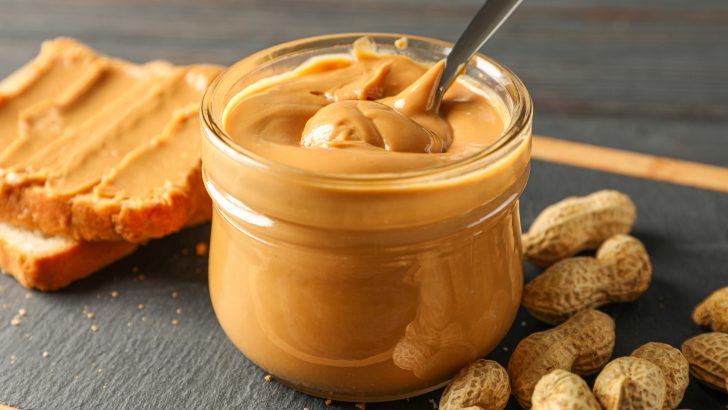Peanut butter, that creamy (or crunchy) delight we slather on everything from toast to celery, isn’t always the nutritional hero we think it is.
Many popular brands hide concerning ingredients behind their tasty facades, from excessive added sugars to questionable oils and preservatives.
Before you grab that jar for your next PB&J sandwich, let’s expose some uncomfortable truths about these pantry staples.
15. Jif’s Sugar Overload
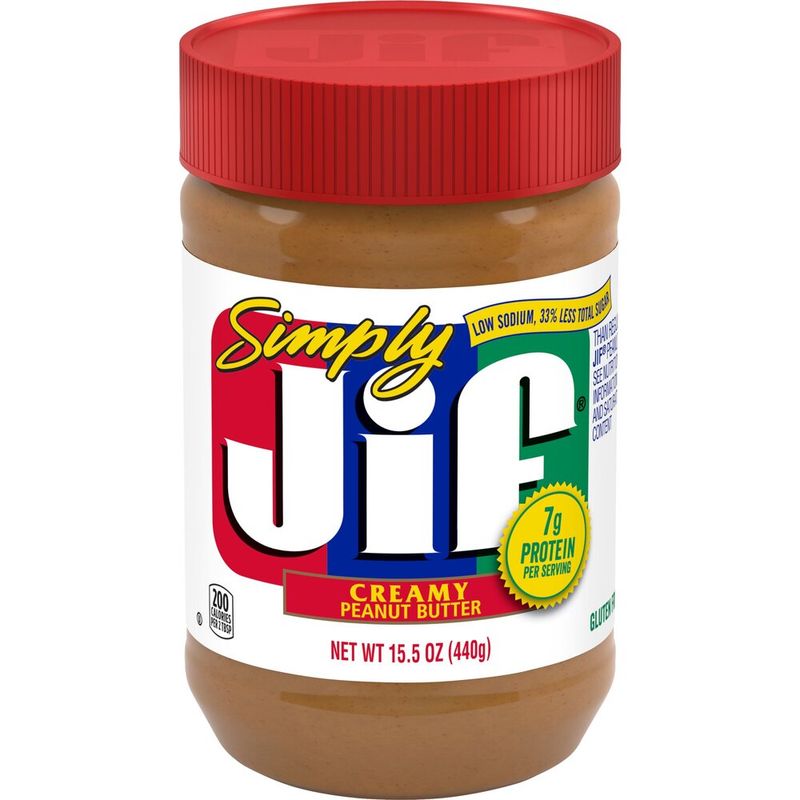
Holy sweetness! Jif contains more sugar than you might expect in something that should primarily be, well, peanuts. The brand adds molasses and sugar that can send your blood glucose on a rollercoaster ride.
What if I told you a single serving packs 3 grams of sugar? That’s nearly a teaspoon in just two tablespoons! Share this eye-opener with your health-conscious friends!
14. Peter Pan’s Problematic Palm Oil
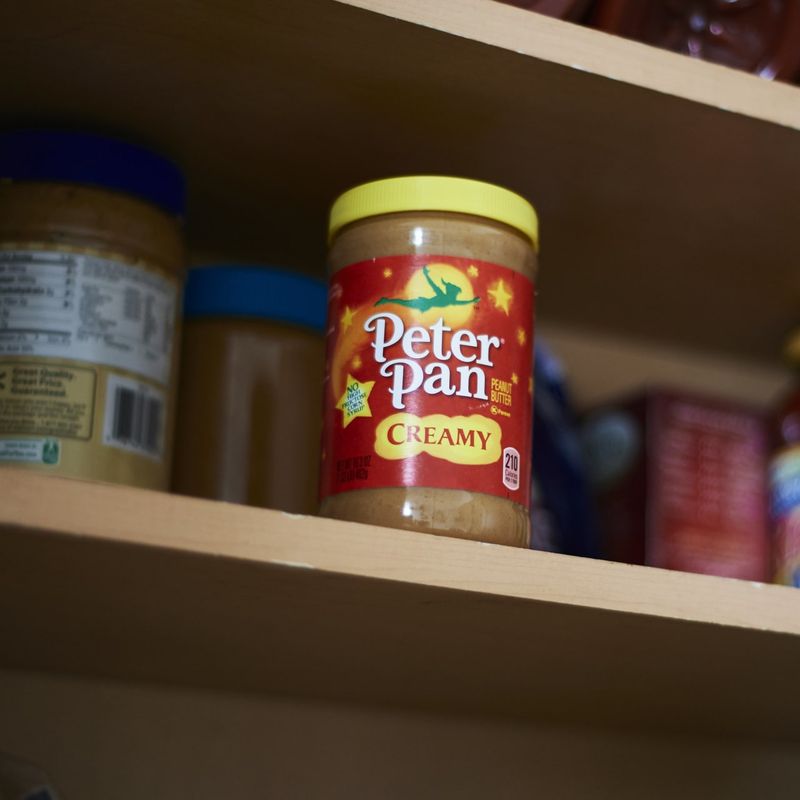
Though Peter Pan promises magical spreads, there’s nothing enchanting about their use of hydrogenated vegetable oils. These trans-fat-containing ingredients lurk behind that familiar taste you’ve grown to love.
Ever wondered why it spreads so smoothly? Palm oil is the culprit! Unfortunately, palm oil production devastates rainforests and endangers orangutans. Consider whether your sandwich is worth the environmental cost!
13. Skippy’s Sneaky Additives
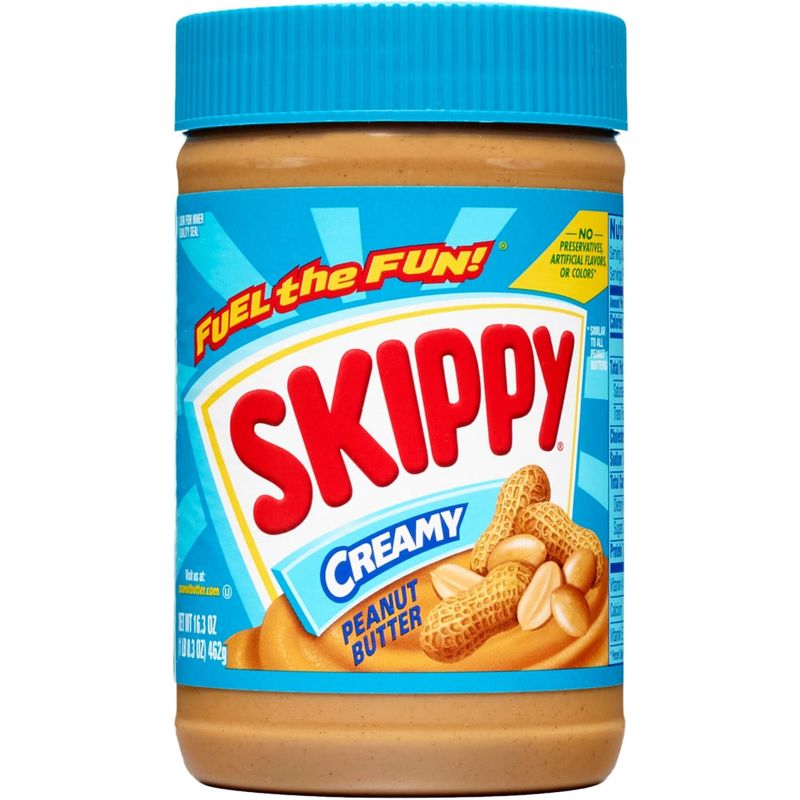
Skippy might make you skip with joy, but those mysterious mono and diglycerides should make you pause! These emulsifiers keep oil from separating but aren’t exactly natural peanut components.
Where does all that creamy consistency come from? Hydrogenated oils stabilize the product but can contribute to heart disease over time. Tag someone who needs to check their peanut butter ingredients right now!
12. Great Value’s Not-So-Great Ingredients
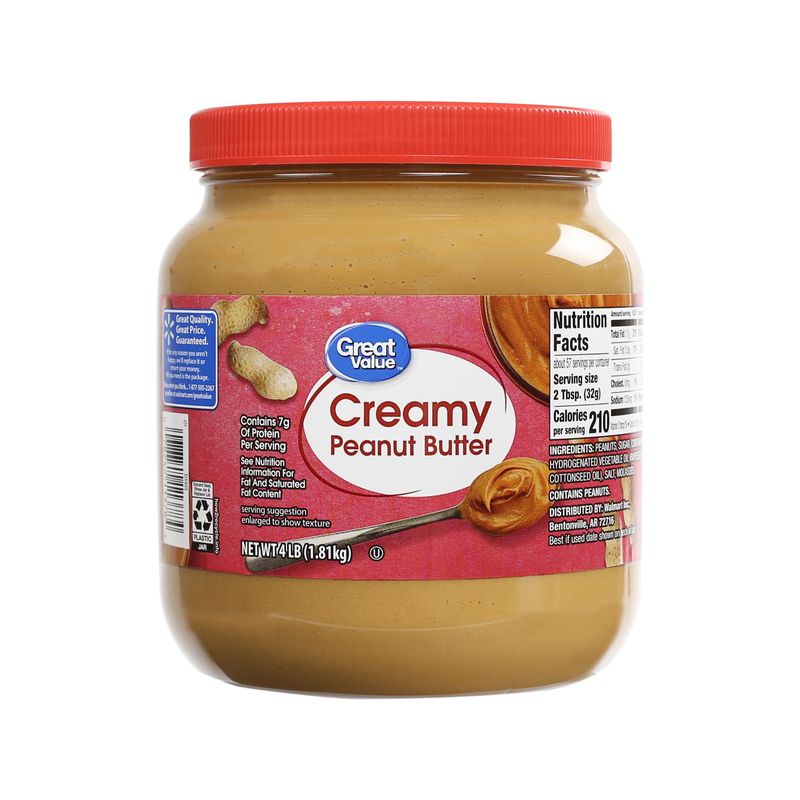
Walmart’s budget-friendly option comes with a hefty health price tag! Their Great Value brand contains fully hydrogenated vegetable oils that your arteries won’t thank you for.
If saving a buck matters more than quality, think again! The cheap price reflects cheap ingredients. Wouldn’t you rather spend slightly more for something that doesn’t require a chemistry degree to understand? Your body deserves better!
11. Smart Balance’s Misleading Marketing
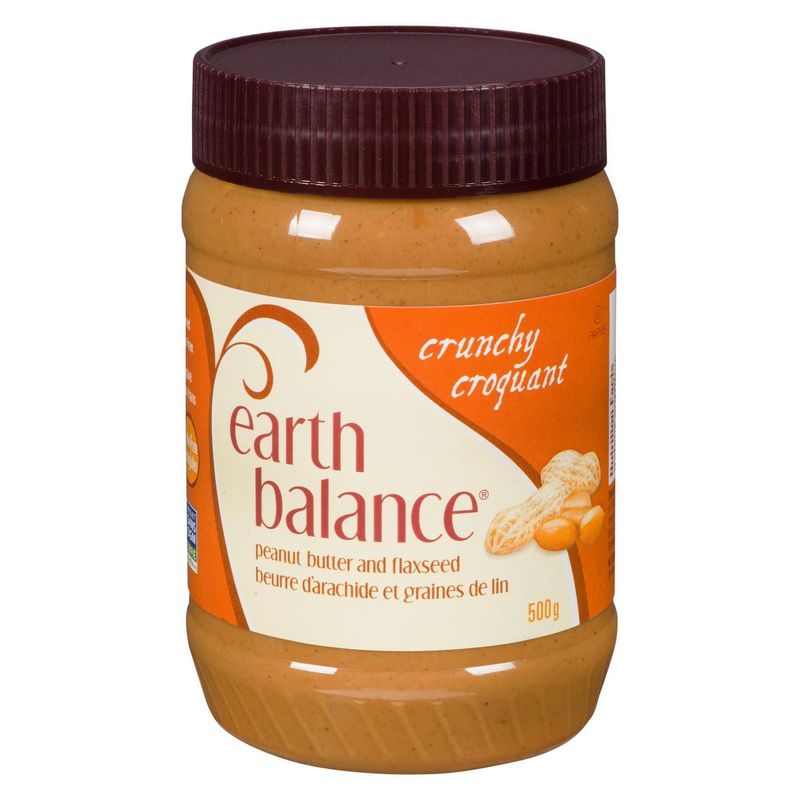
Smart Balance? More like Smart Marketing! Despite health-focused branding, this spread contains added sugar, salt, and molasses that aren’t necessary for great peanut butter.
How clever of them to position it as healthy food while sneaking in palm oil! Though they claim sustainable sourcing, environmental experts remain skeptical about these practices. Don’t fall for clever packaging—read those labels!
10. Reese’s Sweet Deception
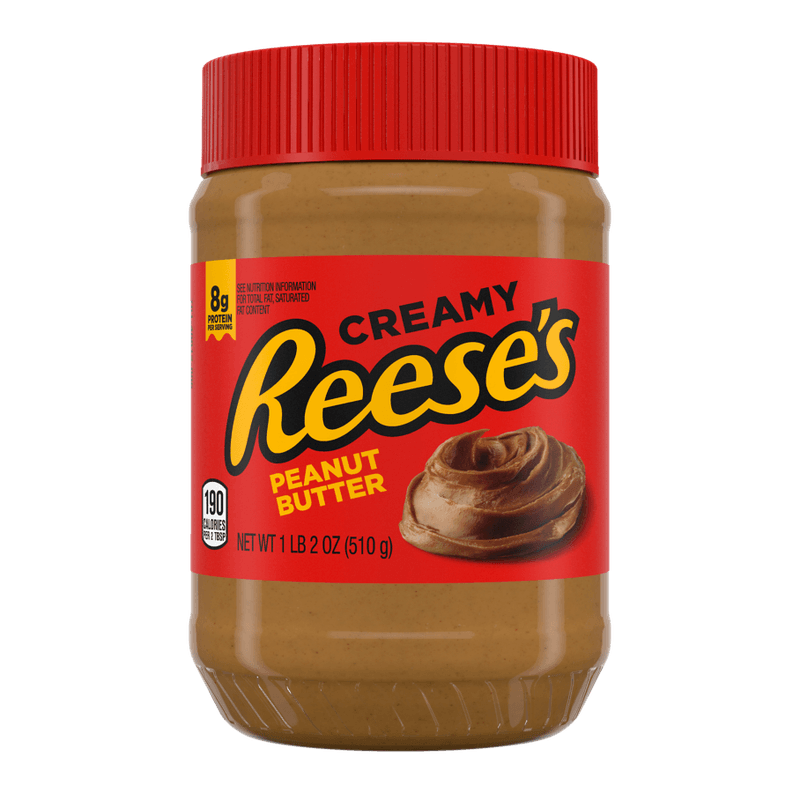
YIKES! Reese’s peanut butter contains a whopping 13 grams of sugar per serving! That’s more than some desserts, masquerading as a protein-rich spread.
If you’re slathering this on your morning toast, you might as well be eating candy for breakfast. Hence the familiar taste that keeps you coming back—it’s basically frosting with peanuts! Drop a 😱 if you’ve been fooled by this candy-in-disguise!
9. Smucker’s Goober’s Grape Nightmare
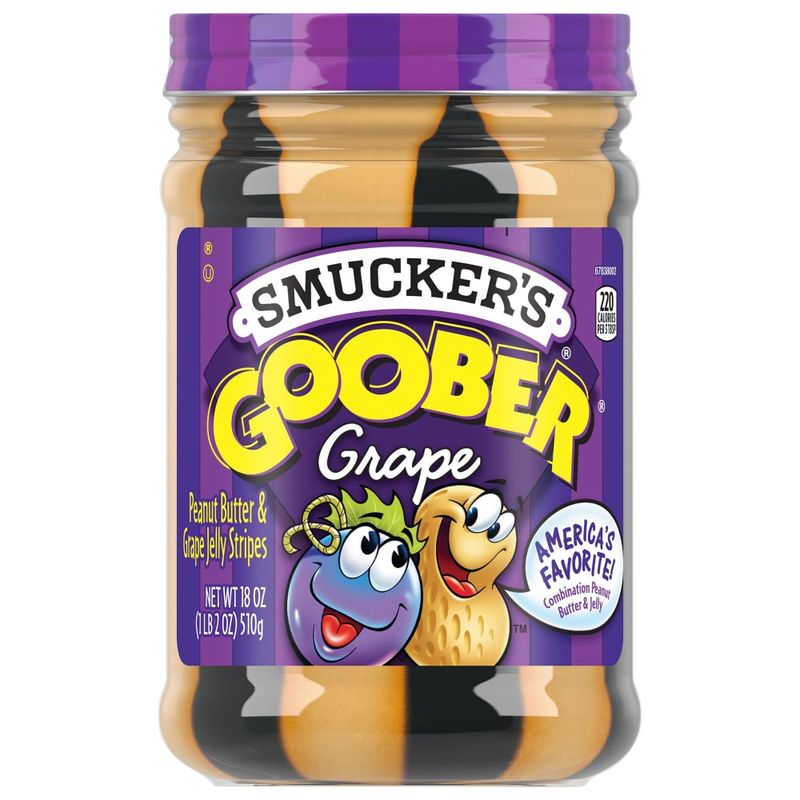
Grape jelly and peanut butter in one jar sounds convenient, right? WRONG! Smucker’s Goober packs a terrifying amount of high fructose corn syrup and artificial flavors into one container.
However tempting this nostalgic treat might be, the convenience costs your health dearly. The first ingredient in the grape portion isn’t even grapes—it’s corn syrup! Ask yourself: is saving 10 seconds worth the nutritional sacrifice?
8. Justin’s Organic Price Gouging
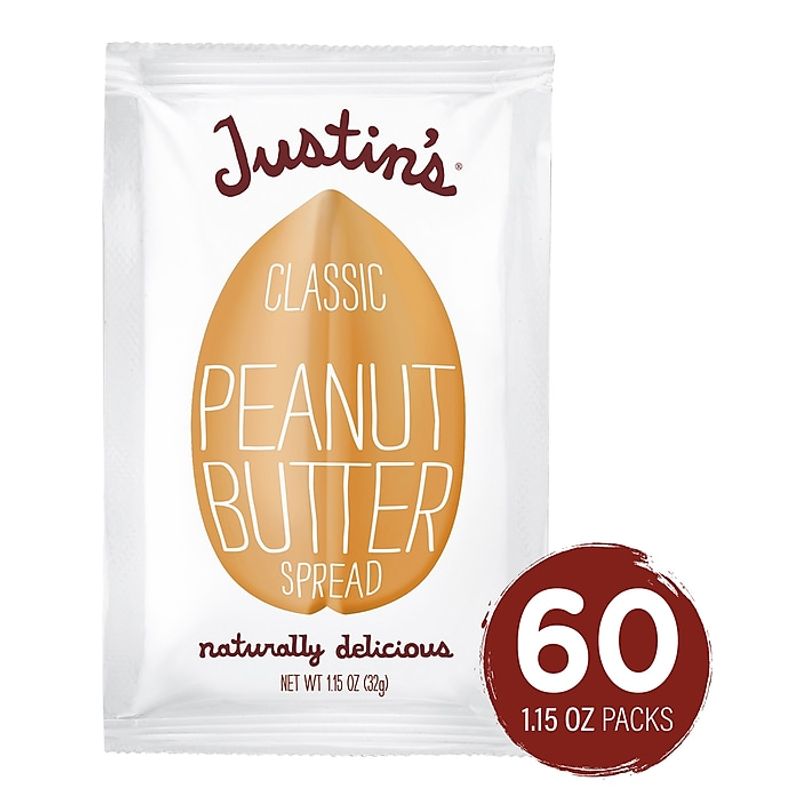
Justin’s markets itself as the premium organic choice, but are you getting what you pay for? Absolutely not! Their tiny jars cost nearly triple other brands while containing suspiciously similar ingredients.
Though they avoid hydrogenated oils, they still add palm oil and cane sugar. Where’s the justification for that hefty price tag? Next time you’re tempted by their fancy packaging, remember you’re mostly paying for marketing, not superior nutrition!
7. Trader Joe’s Sneaky Salt Content

Say it ain’t so, TJ’s! Your favorite hippie grocery store isn’t immune to peanut butter sins. Their creamy variety contains a shocking 75mg of sodium per serving—way higher than necessary for great taste.
WHY does peanut butter need so much salt? It doesn’t! The high sodium content masks lower-quality peanuts. Trader Joe’s devotees might be heartbroken, but truth hurts sometimes. Check your blood pressure after finishing that jar!
6. MaraNatha’s Moldy Mishaps
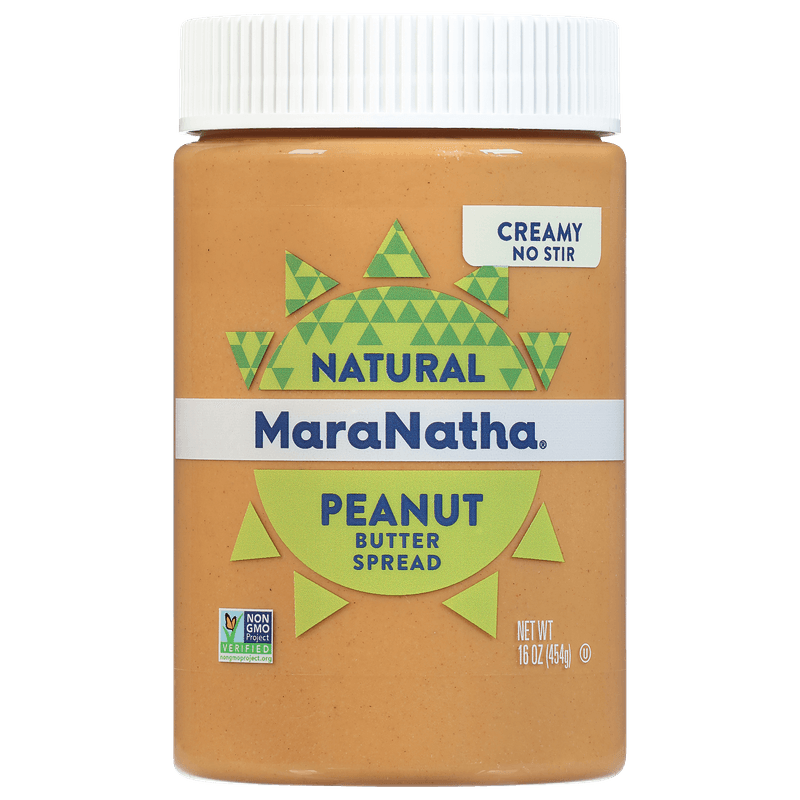
MaraNatha boasts about being all-natural, but multiple FDA recalls for mold contamination tell a different story! Their processing facilities have faced serious scrutiny over cleanliness issues.
Shouldn’t a premium-priced product guarantee safety? The absence of preservatives is great until you’re consuming microscopic fungi! Before spending extra on this “natural” option, remember that natural doesn’t automatically mean safe or clean. Google their recall history!
5. 365 Whole Foods’ Half-Truth Labeling
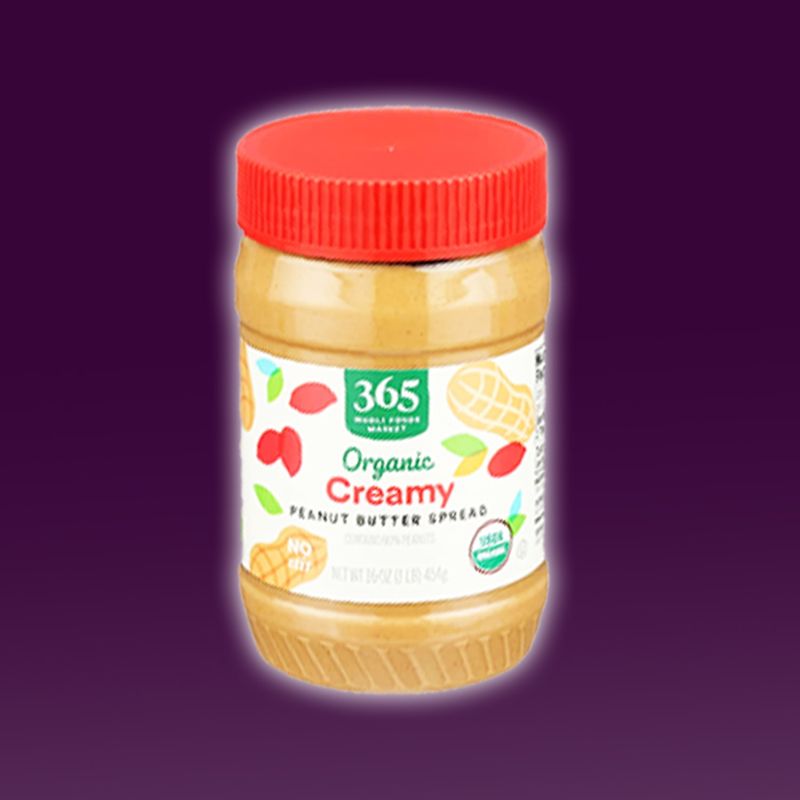
Expensive doesn’t equal excellent! Whole Foods’ 365 brand charges premium prices while still using palm oil in many varieties. The eco-conscious branding conflicts with their ingredient choices.
Bewilderingly, they market themselves as environmentally responsible while using ingredients linked to deforestation. Though slightly better than conventional brands, they’re not the saints their pricing suggests. Don’t let that green label fool you into thinking you’re saving the planet!
4. Crazy Richard’s Cross-Contamination Concerns
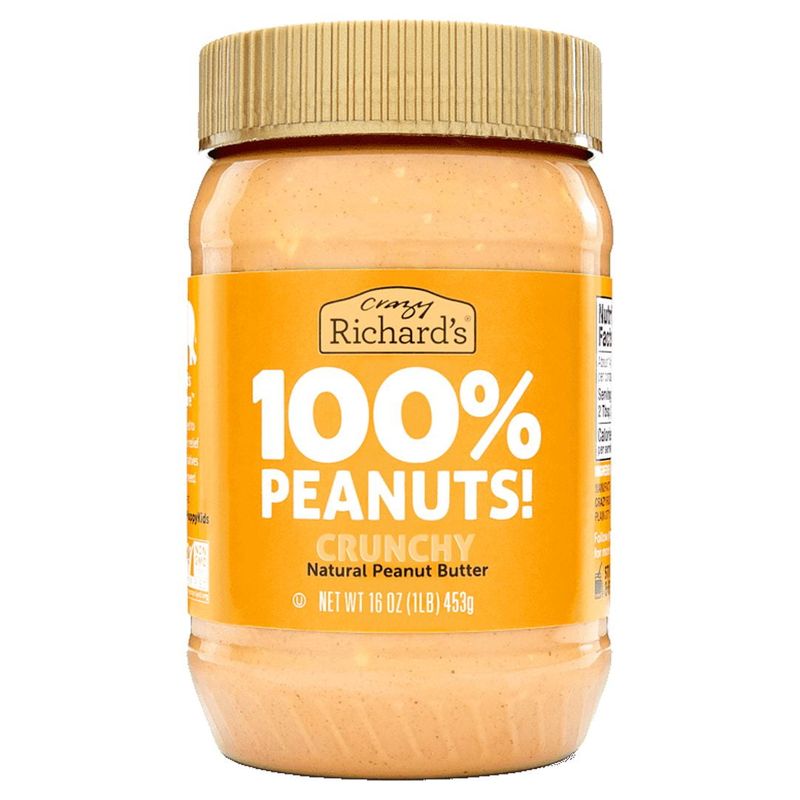
CAUTION! Despite Crazy Richard’s claims of being “just peanuts,” their facility processes multiple tree nuts, creating serious cross-contamination risks for allergy sufferers.
How dangerous is this for those with severe allergies? Potentially life-threatening! While their ingredient list looks impressively pure, their manufacturing practices deserve scrutiny. Parents of allergic children, this information could literally save lives—spread the word!
3. Peanut Butter & Co.’s Flavor Fakery
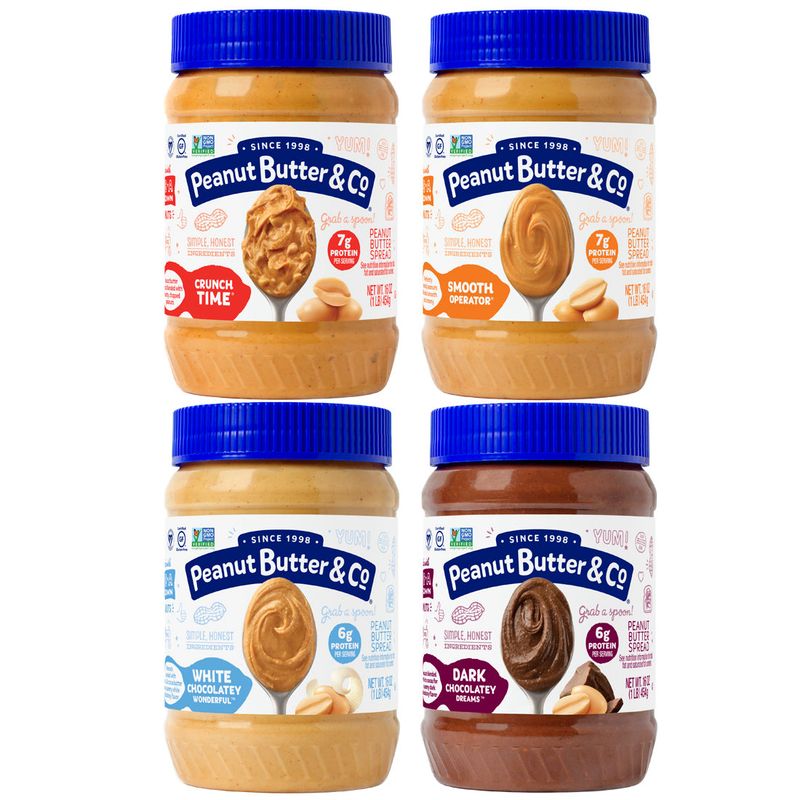
Those fun flavored varieties like Cinnamon Raisin Swirl? Loaded with artificial flavors and excessive sugars! Peanut Butter & Co. masks mediocre peanut butter with novelty tastes.
Shockingly, some varieties contain more sugar than actual peanuts by weight! The cute packaging and gourmet positioning distract from nutritional reality. Are those unique flavors worth the sugar crash that follows? Your pancreas says no!
2. Adams’ Misleading Natural Claims
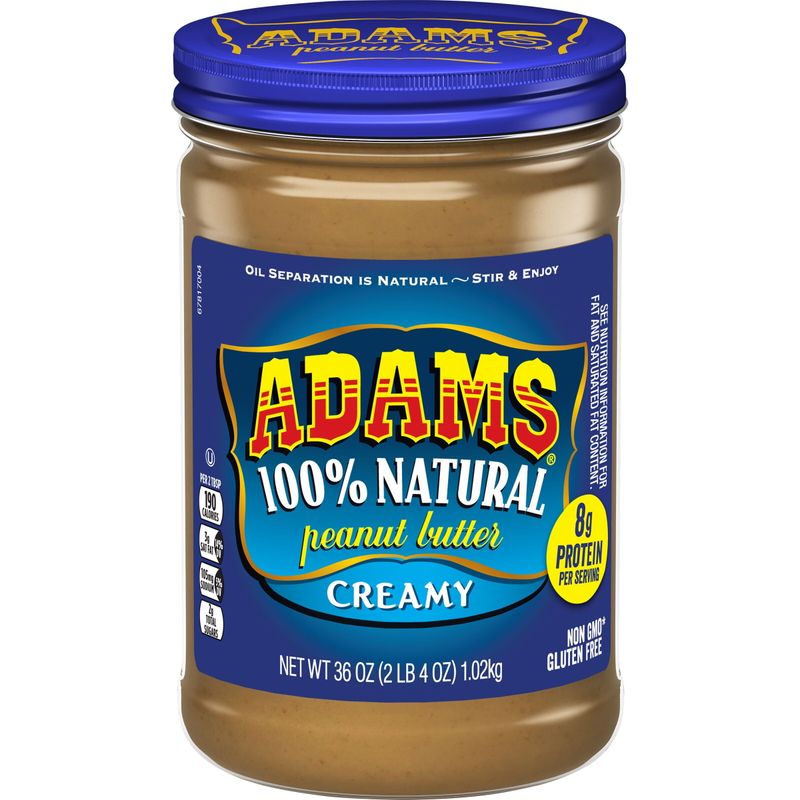
Adams proudly proclaims “natural” status while adding palm oil to their no-stir varieties. This deceptive marketing targets health-conscious consumers who don’t scrutinize labels.
Frustratingly, their “natural” label means virtually nothing by FDA standards! The oil separation in their original variety proves they know how to make it right, yet still offer inferior versions. Don’t be duped by meaningless buzzwords—demand truly natural products!
1. Santa Cruz Organic’s Rancidity Issues

Santa Cruz Organic charges premium prices but struggles with quality control. Many customers report rancid-tasting products due to their minimal preservative approach combined with inadequate packaging.
Would you pay extra for peanut butter that might taste like wet cardboard? Their dark glass jars can’t compensate for processing issues. The bitter, off-putting flavor some customers experience suggests oxidation problems. Save your money and your taste buds!

